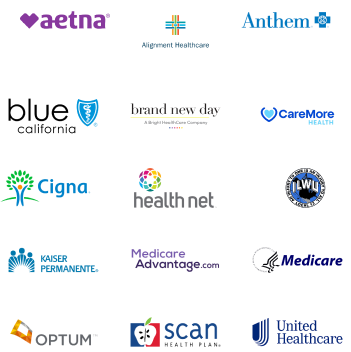Abdominal Pain
Understanding abdominal pain and its potential causes is essential, given how common this health concern is. Whether a person has had a persistent ache for days or a sudden, sharp twinge has left them doubled over in pain, this guide will assist in understanding possible reasons behind the discomfort. Furthermore, it provides insights into when one should seek medical advice, the process of diagnosing abdominal pain, potential treatments, and preventative measures that can be taken.

Overview
The abdomen, often referred to as the belly, is an anatomical area that is bounded by the lower margin of the ribs and diaphragm above, the pelvic bone (pubic ramus) below, and the flanks on each side. This area houses many organs, including the stomach, small intestine, colon, liver, gallbladder, spleen, and pancreas. Therefore, abdominal pain can emanate from any of these organs for various reasons.
What is Abdominal Pain?
Abdominal pain, more casually referred to as a stomach ache, is a sensation of discomfort or distress experienced between the chest and pelvic regions. This sensation can range from mild to severe, be persistent or intermittent, and manifest in various forms such as cramp-like, dull, sharp, or achy. It's a prevalent symptom and can originate from numerous underlying issues, some benign and others more serious.
What Are The Different Types?
Abdominal pain is not one-size-fits-all; it varies greatly from person to person and case to case. The discomfort can be generally classified into several types depending on factors like its location, duration, and intensity:
Generalized Pain
This is when the pain is spread across more than half of the belly. It's often due to indigestion, gas, or a viral infection.
Localized Pain
This is pain confined to one specific area of the abdomen. It's more likely to be a symptom of a problem in an organ, such as the appendix, gallbladder, or stomach.
Cramp-Like Pain
While often not severe, this type of pain can be debilitating. It is usually due to gas and bloating and is often followed by diarrhea.
Colicky Pain
This is a severe form of pain that starts and ends suddenly. It feels like contractions and is often caused by kidney stones or gallstones.
Causes of Abdominal Pain
What Are The Most Common Causes?
The causes of abdominal pain are as varied as the types of pain one might experience. These causes range from minor issues like gas and indigestion to more severe conditions like kidney stones, appendicitis, or even heart disease. Some of the most common causes include: Gastroenteritis: Often referred to as stomach flu, it's an inflammation of the gastrointestinal tract that involves the stomach and small intestine.
Gastrointestinal (Gas)
This is one of the most common causes, and while it can be uncomfortable, it's not severe.
Gallstones
Hard deposits in the gallbladder that can cause sharp pain if they block a duct.
Gastritis
Inflammation of the stomach lining, often caused by the same bacteria that causes stomach ulcers
Peptic Ulcers
Open sores that develop on the inside lining of your stomach and the upper portion of your small intestine.
Kidney Stones
Hard deposits made of minerals and salts that form inside the kidneys. Kidney stones often cause severe pain when they pass through the urinary tract.
Appendicitis:
Inflammation of the appendix which can cause severe pain that often worsens with movement.
Symptoms Accompanying Abdominal Pain
Abdominal pain is a symptom itself. However, it is rarely the only one. The pain frequently comes with other signs and symptoms, like nausea, vomiting, diarrhea, bloating, belching, flatulence, and loss of appetite. These associated symptoms can offer important clues to the underlying cause of the abdominal pain. In severe cases, symptoms could include fever, yellowing of the skin (jaundice), swelling of the abdomen, unexplained weight loss, or blood in the stool.
When to Seek Medical Help
While many cases of abdominal pain are harmless and can be managed at home, certain situations warrant immediate medical attention. If an individual's abdominal pain is severe, persistent, or accompanied by any of the following symptoms, they should seek medical help immediately:
- High fever
- Bloody stools
- Persistent nausea and vomiting
- Yellowing of the skin (jaundice)
- Swelling of the abdomen
- Difficulty breathing Any pregnant woman experiencing abdominal pain should seek medical attention as soon as possible.
Diagnosis
Diagnosing the cause of abdominal pain can involve a combination of methods. Initially, a healthcare professional will evaluate the individual's medical history and conduct a physical examination. This physical examination may include touch (to check for areas of tenderness or mass), listening to the sound within the abdomen using a stethoscope, or visually examining for signs like jaundice. Further diagnostic tests may be required, such as blood, urine, and stool tests, which can provide vital information about infections, kidney stones, liver disease, and other conditions. Imaging tests like X-rays, ultrasounds, CT scans, or an MRI may also be ordered based on clinical evaluation, medical necessity, availability and insurance eligibility to visualize organs, tissues, and other structures inside the abdomen in greater detail. In some cases, an endoscopy might be performed, where a thin, flexible tube with a camera is used to look inside the gastrointestinal tract. For women experiencing lower abdominal pain, a pelvic exam or pregnancy test might be necessary.
Management & Treatment
The treatment of abdominal pain heavily depends on its root cause. Mild pain resulting from benign issues like gas or indigestion may be managed at home with rest, hydration, over-the-counter antacids, heat application, and dietary adjustments. However, severe or persistent pain requires medical attention. Treatments could include medications (antibiotics, pain relievers, antispasmodics), lifestyle changes (diet, exercise, stress management), and in some cases, surgery (appendectomy, gallstone removal, hernia repair).
Prevention
While not all causes of abdominal pain can be prevented, there are general steps that individuals can take to minimize the risk. This includes maintaining a healthy diet full of fiber, drinking plenty of water, regular exercise, avoiding excessive caffeine and alcohol, quitting smoking, and managing stress effectively. Additionally, avoiding known trigger foods if they have food sensitivities or allergies and practicing safe sex and regular screenings for sexually transmitted infections can also help. While this guide provides a basic understanding of abdominal pain, it is always best to consult a healthcare professional like those at ContinuEM Urgent Care for personalized advice. Health is the utmost priority; professionals help navigate and alleviate health concerns, including abdominal pain.
We’ve Got You Covered
Our goal is to provide urgent medical care to anyone in the area in their time of need at a cost that is right for them.
Insurance & Pricing
